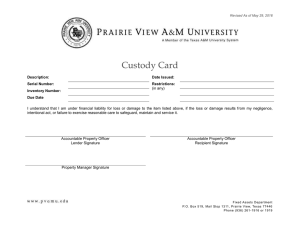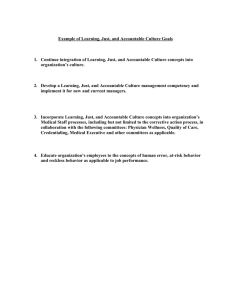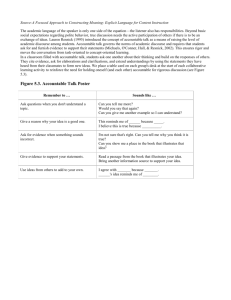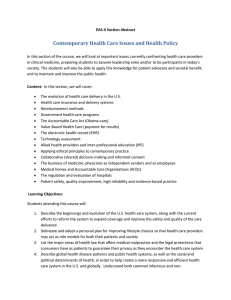Business and Financial Policies and Procedures Western Carolina University
advertisement
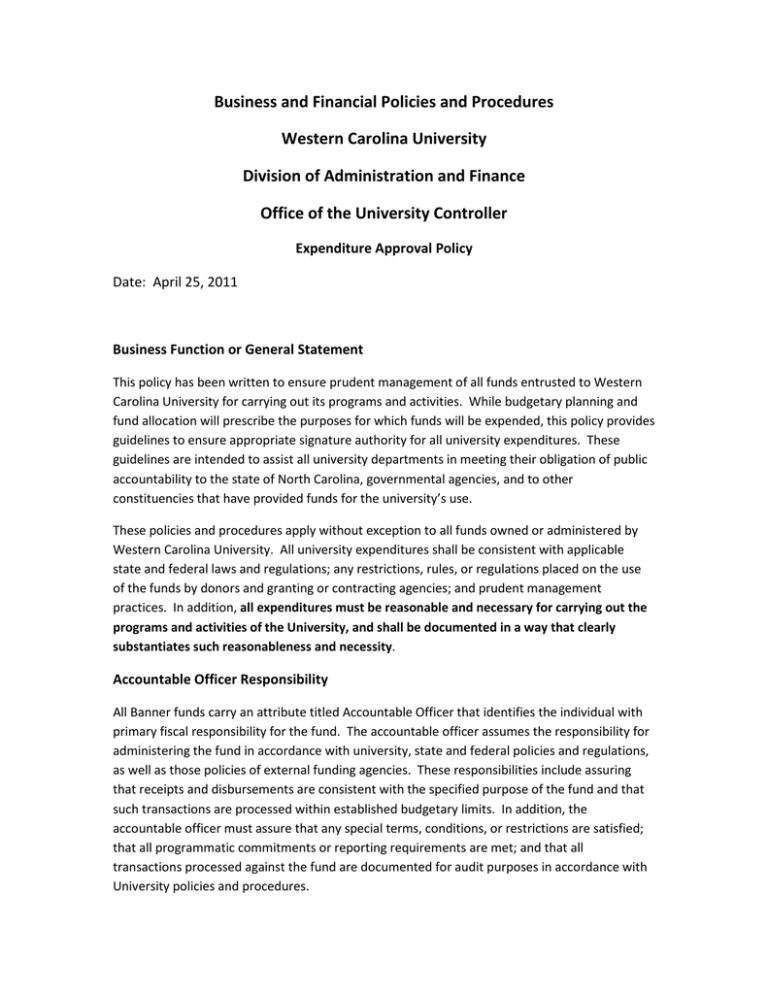
Business and Financial Policies and Procedures Western Carolina University Division of Administration and Finance Office of the University Controller Expenditure Approval Policy Date: April 25, 2011 Business Function or General Statement This policy has been written to ensure prudent management of all funds entrusted to Western Carolina University for carrying out its programs and activities. While budgetary planning and fund allocation will prescribe the purposes for which funds will be expended, this policy provides guidelines to ensure appropriate signature authority for all university expenditures. These guidelines are intended to assist all university departments in meeting their obligation of public accountability to the state of North Carolina, governmental agencies, and to other constituencies that have provided funds for the university’s use. These policies and procedures apply without exception to all funds owned or administered by Western Carolina University. All university expenditures shall be consistent with applicable state and federal laws and regulations; any restrictions, rules, or regulations placed on the use of the funds by donors and granting or contracting agencies; and prudent management practices. In addition, all expenditures must be reasonable and necessary for carrying out the programs and activities of the University, and shall be documented in a way that clearly substantiates such reasonableness and necessity. Accountable Officer Responsibility All Banner funds carry an attribute titled Accountable Officer that identifies the individual with primary fiscal responsibility for the fund. The accountable officer assumes the responsibility for administering the fund in accordance with university, state and federal policies and regulations, as well as those policies of external funding agencies. These responsibilities include assuring that receipts and disbursements are consistent with the specified purpose of the fund and that such transactions are processed within established budgetary limits. In addition, the accountable officer must assure that any special terms, conditions, or restrictions are satisfied; that all programmatic commitments or reporting requirements are met; and that all transactions processed against the fund are documented for audit purposes in accordance with University policies and procedures. A variety of business documents initiated by accountable officers are for the expenditure of funds. The signature or approval of these business documents by the accountable officer certifies that, to the best of his/her knowledge, the transaction is a proper one and that in signing he/she is accepting responsibility for it. A proper transaction is one that complies with published rules and certification, the Purchasing Department and University Controller’s Office enter into agreements and authorized expenditures or transfer of funds. Normally, the signature or approval of the accountable officer is necessary on business documents. This signature authority may be delegated to others. Additional signatures are often necessary as indicated in this and other guidelines. Conflict of Interest Accountable officers and other approvers of University business transactions cannot approve their own documents or transactions. In addition, they may not approve documents or transactions payable to their immediate supervisor, the supervisor’s business or the supervisor’s immediate family. An exception to this applies to approvers of documents or transactions payable to the chancellor Travel Traveler certification – The travel certification on all travel vouchers must be signed personally by the traveler (payee). Approval of vouchers – Employees may not approve their own travel voucher. Travel vouchers for the accountable officers or designated approvers, as a rule, are approved by the head of the next supervisory administrative unit or delegate. Personal Services Employees may not approve their own payroll documents. Payroll documents for an accountable officer, as a rule, are approved by the head of the next supervisory administrative unit or delegate.

